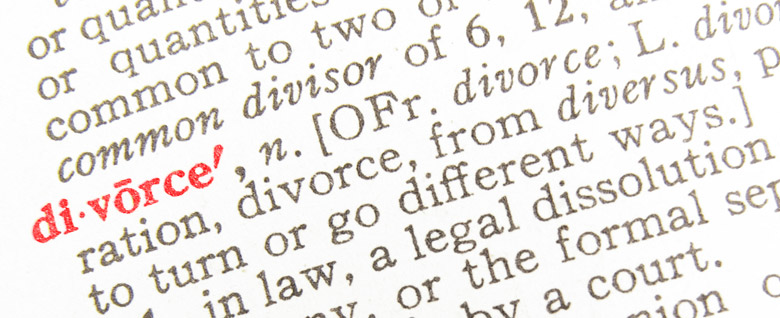Going through a divorce can be one of the most difficult and demanding times in anyone’s life. Add to that significant financial worries – not just about how much money you are likely to receive post-settlement, but the cost of a divorce itself – and many can find the process overwhelming.
Now, with fewer divorce cases being eligible for public funding, the temptation to ‘go it alone’ is stronger than ever. This has given rise to the so-called DIY divorce, where much of the paperwork is completed without the help of a solicitor.
However, with the potential to make savings, comes the potential to make mistakes.
According to date from Resolution and the Courts and Tribunals Service, approximately 40 per cent of all applications for divorce petitions had to be returned for correction or because they were incomplete. It is believed that a large proportion of this figure come from DIY divorces.
To help you, we have compiled a list of reasons why ‘DIY’ applications for divorce petitions might be rejected:
Why 'DIY divorce' applications might get rejected
No divorce petition court fee enclosed
The fee currently stands at £550 – this must be included in the application.
Details of the marriage are incorrect
All details listed on the petition must match the marriage certificate exactly. If details such as names or the place and date of marriage are incorrect, the application will be returned.
No marriage certificate was received
In this case, either the marriage certificate was not received at all, or the certificate was not the original or an official copy. In some cases, the application will be rejected because the certificate is in a foreign language and has not been properly translated.
Jurisdiction page is incomplete
This page confirms whether the Family Court of England and Wales has legal jurisdiction to deal with the divorce - as opposed to another country. If this is incomplete or incorrect, the application is invalid.
‘Other proceedings or arrangements’ is incomplete
This section clarifies whether there have been any other proceedings relating to the marriage.
Statement of case incomplete
The statement of case sets out the reasons for wanting a divorce - such as unreasonable behaviour, or adultery. The application will be returned if this section is incomplete or contains insufficient detail for the court to justify granting a divorce.
‘Grounds for divorce’ invalid
There are five ‘grounds for divorce’ – or reasons - that can be applied to divorce proceedings. If the grounds selected do not match the ‘statement of case’ then the form will be returned. Equally, if more than one grounds is selected, the application cannot proceed.
No ‘fee remission contribution’ has been received
If applying for exemption from paying some or all of the court fee, or for a partial refund of a fee already paid, it is necessary to provide certain details in the application.
‘Service details’ are not complete
In this case, the details, including an address for service of the petition to the other party has not been completed. Without these details, the application cannot proceed.
The divorce process
Remember, in the vast majority of cases, the divorce process can be long and highly complex. There are numerous matters to consider and even more potential ways to settle them. DIY divorces can often end in confusion and solicitors will then be called upon to fix mistakes or deal with matters that the DIY route cannot cover – such as childcare and financial issues.
One of the most important aspects of any divorce is formalising the financial arrangements. We often see clients who have been divorced several years previously and have attempted to manage much of the financial arrangements themselves. One party may even have transferred a property into their former spouses name under the condition that they do not seek monies in the future.
These sorts of informal settlements are common in DIY divorces and do not provide the security of a ‘clean break’ or financial remedy order, which prevents either party pursuing more money and assets in future.
Such vulnerabilities are not confined to financial matters. Questions over how to divide other matrimonial assets, who should live in the family home and the arrangements for supporting children could all be challenged in future unless the final settlement is watertight. A specialist legal professional can help you address these issues.


